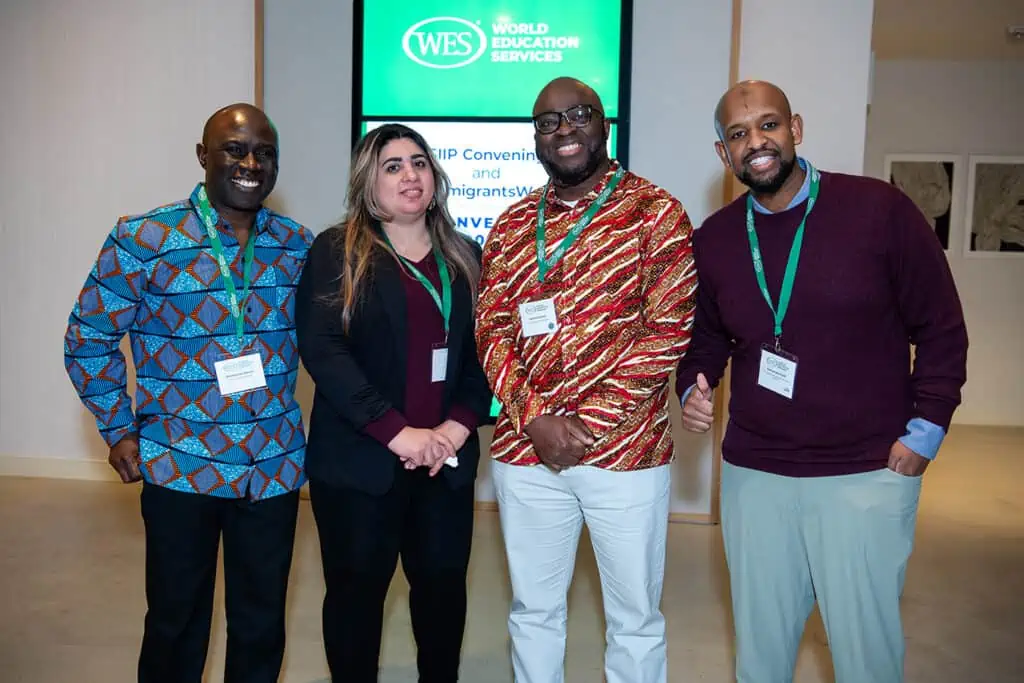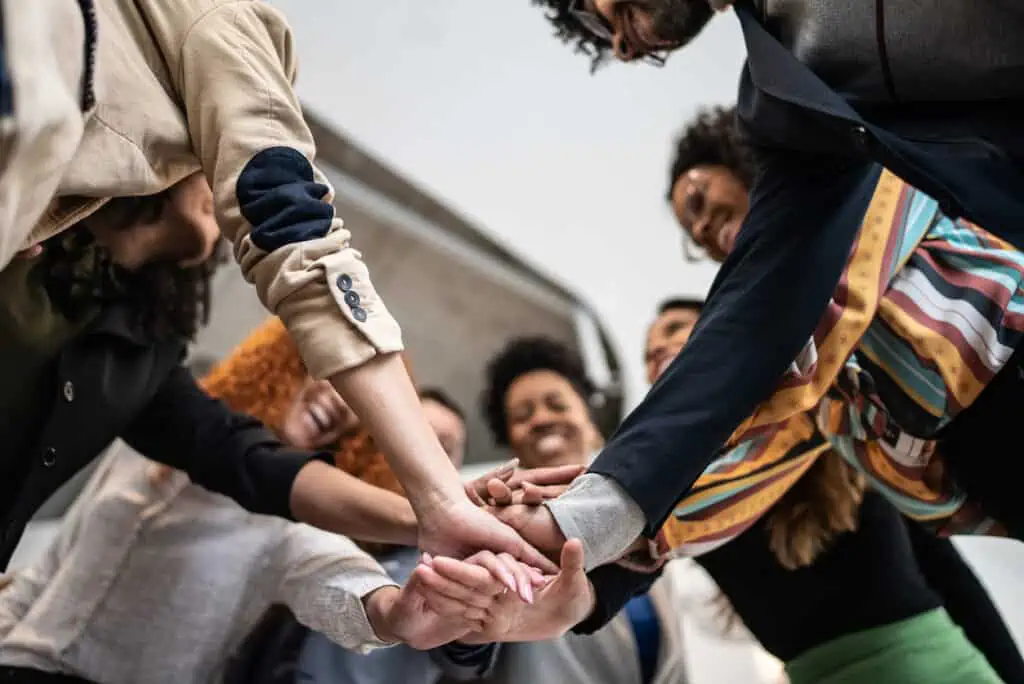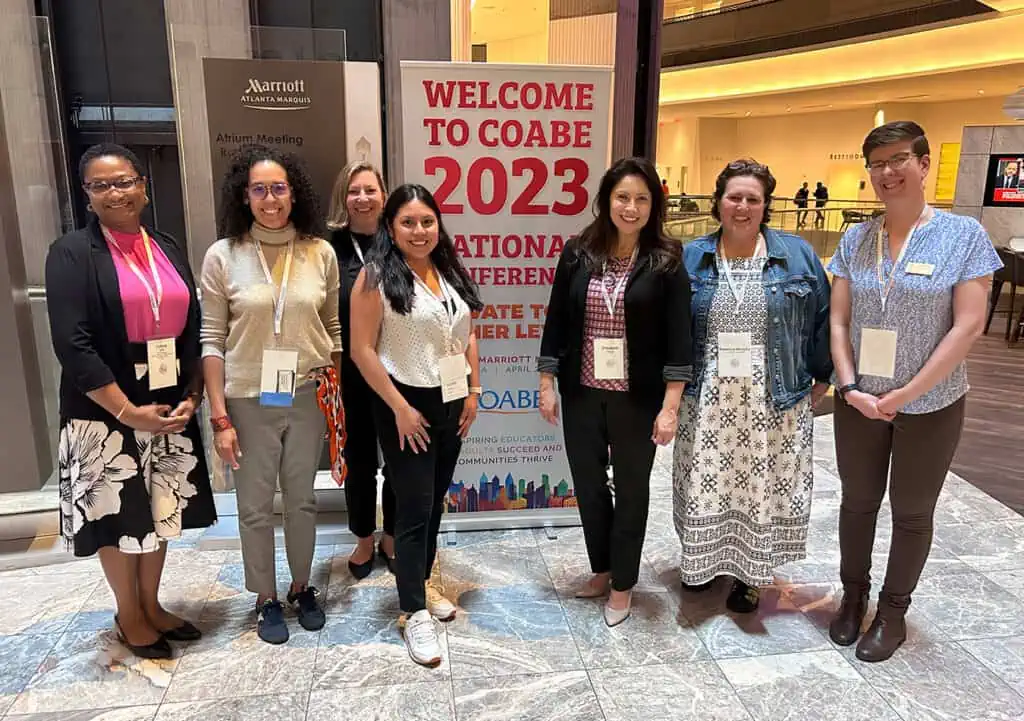Year in Review: Skilled Immigrant Integration Program
Representatives from organizations around the country attend a convening in Toronto as part of the Skilled Immigrant Integration Program
As the Successes Mount, We’re Looking Ahead
This past year marked the launch of WES Global Talent Bridge’s Skilled Immigrant Integration Program (SIIP), a national pilot program offering selected communities the opportunity to leverage technical assistance (TA) from WES and its national partners and join a network of communities to further their state and local skilled immigrant integration initiatives. Each of the eight communities in the 2018 program took full advantage of the program’s partnerships and resources to develop and execute plans to advance their skilled immigration integration efforts.
The communities chose to focus on local needs in areas including employer engagement, local and regional partnerships, and engaging community colleges, among other options. Their results have been impressive:
Boise/Twin Falls/Salt Lake City
- Increased cross-city collaboration and program development through community workshops.
- The effort helped the community secure a Refugee Career Pathways grant from the Office of Refugee Resettlement to build on what was started in the SIIP program.
Denver
- Created an engineering Career Pathways Guide.
- Developed content for a virtual hub of services for skilled immigrants at Emily Griffith Technical College.
Louisville
- Created Career Pathways Guides for nursing and engineering.
- After connecting with Windmill Micro-lending in the SIIP convening in Toronto, Louisville is now planning its own micro-loan program to help skilled immigrants get back to their profession or continue their education.
Maryland
- Created an engineering Career Pathways Guide and a ‘hire skilled immigrants’ document.
- Participation in working groups for the Skilled Immigrant Integration Program has further strengthened the stakeholder task force’s network.
Michigan
- Developed a WIOA services checklist and a PowerPoint resource to help workforce development service providers determine immigrants’ WIOA eligibility.
- Hosted a training with staff from Talent Investment Agency and Michigan Worforce Agency. The Michigan Office for New Americans presented the group’s engagement in the program with Global Michigan, a statewide stakeholder network that focuses on immigrant integration best practices around the state.
Ohio
- The Ohio coalition worked with Governor Kasich to build awareness about skilled immigrant integration. The governor created an Office of Opportunities for New Americans, appointed a professional to lead it, as well as an advisory council to oversee it.
- Worked with the state to enhance resources for visitors to Ohio’s licensing guide web page, including adding links connecting them to the Global Talent Bridge Career Pathways Guides.
Santa Clara
- Hosted two immigrant career fairs at the local LinkedIn office.
- Created a Facebook page for the Refugee & Immigrant Forum, which facilitates the successful integration of refugees and immigrants into local communities.
St. Louis
- Created Career Pathways Guides for nursing and teaching and are now working on one for engineering.
- Hosted a convening of local service providers, employers, and the community college.
The states and localities participating in the 2018 program reflected a spectrum of geographic and demographic characteristics, as well as shared qualities including evidence of leadership and commitment, a robust network of multi-sector stakeholders, strength of local partnerships, and strategic alignment with WES Global Talent Bridge’s mission and goals.
With the technical expertise provided by the program, the eight communities were able to expand their goals and efforts on the local level to develop and strengthen partnerships with like-minded organizations on a national level. Bryan Warren, director of the Office for Globalization at Louisville Forward, described the expertise and experience found in the SIIP cohort as “an incredibly valuable resource” that not only brought “knowledge of the field, but a local and regional viewpoint from their communities that helps us bring a national perspective to our work in Louisville.”
This opportunity to meld national and local perspectives ranked high in each participating community’s reflections on the program’s outcomes – reflecting the success of the program’s founding goal of establishing a localized approach to providing customized training, coaching, and technical assistance to advance concrete initiatives that will help bring about meaningful, effective, and sustainable skilled immigrant integration across the country.
Exchanging expertise and experiences
To ensure a dynamic program, WES Global Talent Bridge required its participants to engage fully over the course of the year by exchanging ideas, sharing best practices, and partaking in discussions with TA providers and other program participants. Each participating community received:
- 24 hours of coaching, advising, and customized technical assistance provided by WES Global Talent Bridge and other national experts
- Sponsored participation in a convening in Toronto, Canada, with the aim of fostering cross-border exchange with Canada, peer learning, community building, and networking with national partners
- Interactive web-based training sessions with WES Global Talent Bridge and other national partners on topics related to skilled immigrant professional integration
- Monthly calls with WES Global Talent Bridge and participating states and/or cities to share ideas and provide updates on the progress of local efforts
- A platform for regular collaboration with peers on immigrant professional integration
TA providers in the program included:
- Community College Consortium for Immigrant Education
- National Skills Coalition
- Upwardly Global
- Welcome Back Initiative
- Welcoming Center for New Pennsylvanians
Looking back over the year, responses have been overwhelmingly positive. “The technical assistance provided by WES Global Talent Bridge and the other providers on the project is essential in helping us move the issue of skilled immigrant integration into the larger workforce and economic development conversation on our region,” reflected Blake S. Hamilton, vice president of programs at the International Institute of St. Louis. Jill Casner-Lotto, director of the Community College Consortium for Immigrant Education described the Toronto convening as a substantive opportunity for SIIP community members to collaborate and learn from one another. Citing the benefits of the monthly calls and the Toronto convening, Amanda Olmstead, Workforce Programs manager at the Maryland Office for Refugees and Asylees in the Department of Human Services called the technical assistance by WES Global Talent Bridge and the other providers “critical for Maryland in learning how to serve immigrants.”
Forging deep partnerships
Developing partnerships across the country was instrumental in the program’s success this year and to the future successes of its participants. The simultaneously individualized approach and reliance on collaboration within the program created a solid foundation for each community to spring from, reflecting on their own local needs while incorporating ideas from their wider exchanges. In Michigan, for example, Michigan Office for New Americans (MONA) deputy director Karen Phillippi spotlighted strengthening partnerships across the country as integral in their goals to enhance access to workforce development services for immigrants and refugees and help internationally educated healthcare professionals navigate career pathways in the U.S.
As they set goals for their work helping skilled immigrants integrate into the workforce, SIIP participants can rely on the network of expertise, ideas, and access to resources the program provides through these partnerships. Louisville’s Warren explains that the partnerships not only serve to provide a measure of comparison for each community to improve, but also raises the profile of work within each community, demonstrating that each community is “part of a leading discussion on immigrant professional integration [that] validates the importance of this workforce demographic with […] local partners.”
Looking ahead
As the eight communities participating in SIIP’s 2018 pilot wrap up their year and continue their work on creating resources and developing programs for skilled immigrants, SIIP is looking ahead to a new year of vigorous exchanges and powerful strides forward.
Click here for more from WES Global Talent Bridge.




